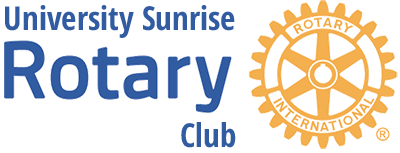
Annabel Quintero’s life was irrevocably changed on September 11th, 2001, when she narrowly escaped from the 46th floor of the One World Trade Center during the deadliest attack on U.S. soil. Her book, “Step Step Jump: Transforming Trauma to Triumph from the 46th Floor,” is an in-depth examination of the American immigrant experience, a study of spirituality in a secular world, a look at divine intervention in times of crisis, and an exploration of empathy against the backdrop of the financial and societal forces that shape the globe.
Today, Annabel has a Master’s degree in Education policy and Leadership, is an Amazon best-selling author, and cultural wellness coach. Her diverse experience as a cultural broker, educator, and coach are connected by a common thread: positively impacting people’s lives.
Annabel is a personal and cultural wellness coach. As a result of her VIP coaching, clients stop compartmentalizing triggers, begin to practice self-awareness techniques and jump into their cultural blindspots to achieve visions bigger than themselves.
As a result of her DEI workshops, she helps leaders expand their understanding of Diversity, Equity & Inclusion through her multi-racial ethnic workshops on Latino identity with a focus on financial, political and spiritual history. Understanding old mindsets, and identifying how they inform systems today, create the ability to choose a different course forward. Her goal is to truly heal deep wounds so that we can redefine cultural wellness and transmute trauma for all.
Get your copy of Step Step Jump – Transforming Trauma to Triumph from the 46th floor today at: https://www.amazon.com/dp/B095L171BR
Presentation Notes from Stuart Webber:
Annabel Quintero was 23 years old and working on the 46th floor in World Trade Center One on September 11, 2001. She felt the impact when a plane hit the building, smelled the fire, and escaped by stepping and jumping down the stairs from the 46th floor.
Years after that event, she recognized that she continued to suffer from the trauma of September 11, experiencing PTSD and survivor’s guilt. She later returned to Seattle. She said two activities helped her to recover. One was to attend a 10-day meditation retreat. The second was to participate in a Native American sweat lodge.
She said the meditation retreat taught her how such traumatic experiences impact our mind, our emotions, and our body. Through meditation she learned how to step back and observe her thoughts, understand how those thoughts impacted her emotions, and how those painful emotions can create physical traumas within the body, such as tension and other uncomfortable sensations. These uncomfortable physical sensations are frequently ignored in western medical practice. Through the mediation retreat and the sweat lodge, she learned about somatic healing and how to address these uncomfortable physical sensations. This helped her recover. She also said these activities strengthened her spiritual foundation. Further, she said her experience helped her to handle the stresses associated with the pandemic.
In general, she said that to recover from such traumas it is important to:
- Identify what triggers you
- Increase self-awareness
- Taking action to resolve issues (Jump)
Quintero also said journaling was an important activity which helped her understand what triggers trauma, and to increase her self-awareness.
Quintero is the author of “Step Step Jump: Transforming Trauma to Triumph from the 46th Floor,” a book which recounts her experiences.











